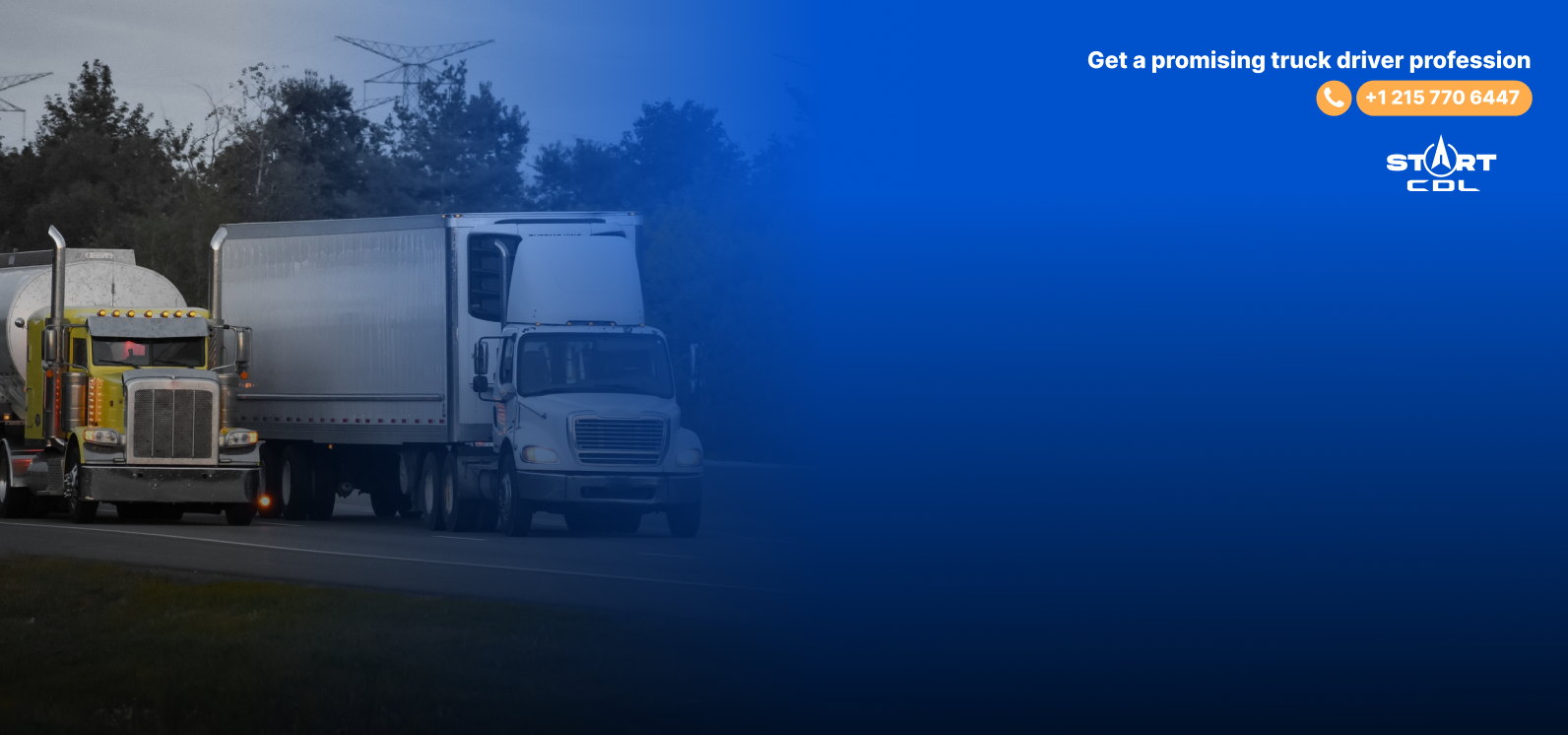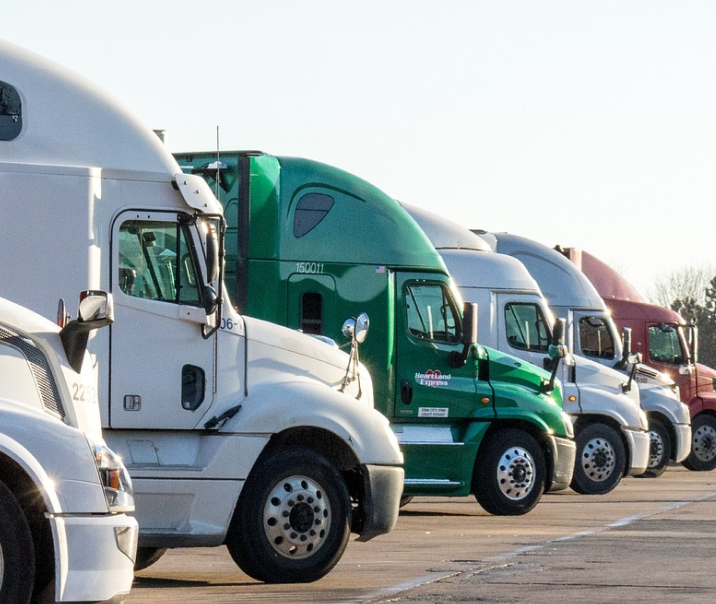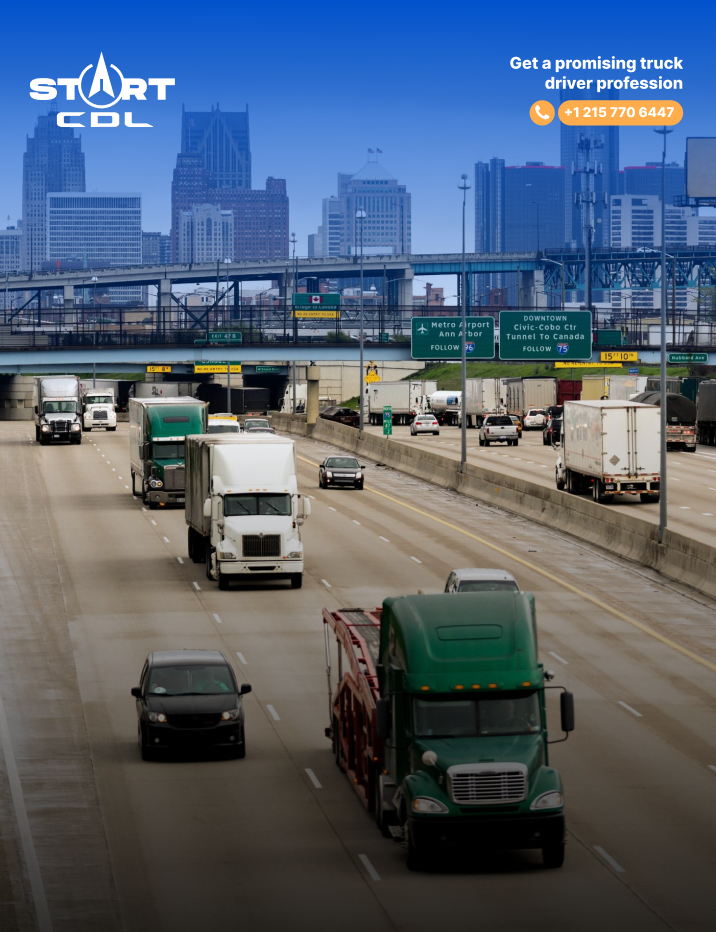

Regional trucking plays a vital role in linking various cities and provinces within a single region as part of the transportation network. If you want to become a regional truck driver or are just curious about what regional means, then this material is for you. Here you will find the concept of regional trucking, its pros and cons, as well as differences between regional and local transportation. Ready to learn whether this type of work is actually what you are seeking?
Regional Truck Driver Meaning
Let’s first figure out what does regional mean in trucking. Typically, these are distances from 100 to 1000 miles from the departure point. Hence the answer to the question “What is a regional truck driver?”. This person drives within a specific region, transporting products between urban areas without crossing other regions.
Regional drivers return home more often than long-haul truckers, which makes their job less exhausting.
Regional Truck Driving: Pros and Cons
Regional trucking has its distinct advantages and disadvantages. It is very important to weigh the pros and cons to see if this path is right for you. Each driver must find own balance, taking into account personal priorities and job expectations.
Pros
Here is a list of the main benefits:
- More predictable schedule. Unlike long-haul truckers, regional drivers tend to have a more stable schedule. You won’t lose touch with your family, as you often return home on weekends or even several times a week.
- Reduced fatigue. Since the routes are shorter and less intense, working as a regional trucker can be less tiring.
- Relationships. Working in one region is a great opportunity to communicate with regular customers and establish professional connections.
- Diversity of routes. Even though you work in one region, you can still meet new places and people, which makes the work more exciting.
- Interstates. Have you ever heard about interstate meaning in driving? This means special roads that connect different states. These roads usually have multiple lanes and interchanges, which allows for faster travel. Nevertheless, interstates experience heavy traffic, so it is crucial to adhere to the regulations to guarantee safety.
Therefore, the advantages of regional freight transportation are quite obvious and straightforward. A more predictable work schedule lets you stay connected with your family. And short routes reduce fatigue. Just as significant is the opportunity to interact with regular clients and the variety of routes to choose from. This adds interest and excitement to the job.
What Is Regional Trucking: Main Cons
Let’s delve into the drawbacks:
- Less earnings. In general, regional drivers may earn less than long-haul drivers. This is due to the lower mileage.
- Limited room for growth. Some people may find working within one region boring and monotonous.
- Frequent overloads. Such trips can be more frequent and stressful, as the cargo must be delivered quickly.
- Traffic jams. Routes often pass through large cities or towns. Therefore, you may face severe traffic jams and delays.
The disadvantages are not very serious, as you can see. But still, interstate trucking may not appeal to some people, especially those looking for more freedom and earning opportunities.
Why Is Regional Trucking Right for You?
Now, let’s examine the reasons why regional trucking might be good for you. Firstly, this job will teach you how to harmoniously combine work and personal life. If you appreciate the chance to spend more time at home, especially during weekends, regional driving is a great choice without a doubt.
Another benefit is the opportunity to establish strong connections with regular clients. This is not only profitable but also enjoyable. It is like hanging up with friends – you share jokes, have a mutual understanding, and know what to expect from each other.
If you are not afraid of short but intense routes, which can sometimes include city traffic jams, then interstate trucking can be an interesting challenge. It will test your navigation skills and patience.
We would also like to reveal Trucking Along meaning in this context. This program is designed specifically for drivers and aimed at helping them stay fit and take care of their health on the road. After all, it is not always easy to maintain an active lifestyle with such a schedule: sedentary work, long hours behind the wheel. Trucking Along offers simple but effective solutions to increase physical activity and improve overall well-being.
Differences Between Regional Trucking and Local Trucking
Diving deeper into the topic, it is important to understand the difference between regional and local freight shipping. Here are the main differences:
- Distance. Regional drivers travel across multiple states, while local are limited to a specific city or area. Local drivers usually take short routes and return home every day.
- Schedule. Regional truckers have a very flexible schedule but are often on the road for at least several days at a time. Drivers in the local area typically follow a fixed schedule, which results in a more predictable routine.
- Earnings. Depending on the company and the specific route, regional drivers may sometimes make more money than local because of the increased distance they need to travel. But local drivers typically have a stable income because the work is permanent.
Overall, the choice between regional and local freight transportation depends on the driver’s personal preferences and lifestyle. Each option has its pros and cons, and the main thing is to find what will please and satisfy.
Final Notes
So, regional trucking is an interesting and rewarding job that can suit many drivers. If you are looking to maintain a work-life balance, this may be an excellent choice. What is a regional driver meaning? What are the main responsibilities? It’s actually quite simple. A person works within a certain region, which brings some pros and cons. Understanding the differences between local and regional freight shipping will help you make an informed decision.
Whatever your choice, the most important thing is to find joy in what you do. Try to listen to yourself and understand what you really need. And then you will definitely succeed!
Related Articles
10 years of experience
and
10000+ graduated
students with CDL
Feel free to ask
us any questions about
getting a CDL in the USA


 @startcdl
@startcdl
 +1 (224) 520-3169
+1 (224) 520-3169






